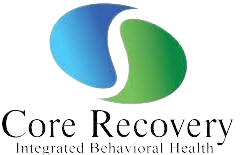Often people in the early stages of mental illness don’t seek treatment because they don’t recognize their symptoms.
Taking a mental health screening is one of the fastest and easiest ways to determine whether you are experiencing symptoms of a mental health condition. Mental Health America offers screenings that only take a few minutes, and once finished, you’ll receive information about the next steps based on the results.
Keep in mind that a screening is not a diagnosis. However, screenings can be a helpful tools to start a conversation with your doctor, therapist, or a loved one about your mental health concerns.
Early Treatment Can Be Key
If you are experiencing mental health concerns that keep you from functioning or feeling good, professional help can make a difference. In a year fraught with health concerns, isolation issues, social unrest, economic hardships, and more, you are certainly not alone.
But it’s best not to wait until you’re in crisis to seek help. Even if you’re unsure whether you could benefit from counseling, it’s worth exploring. A mental health professional can help you:
- Develop actionable plans for solving problems
- Better deal with challenges
- Identify and change behaviors that are holding you back
- Shift to a positive way of looking at things
- Heal from painful things in your past
- Identify and set new goals, and strategies to reach them
- Build self-confidence
Most people who receive professional help do feel better. In fact, studies show more than 80 percent of people who are treated for depression improve, and 90 percent improve from treatment for panic disorders.
Remember, getting help for a mental health concern is a sign of real courage. Take steps toward getting and keeping your life on track.
How to Get Started
Knowing what to expect from a mental health provider can make taking that first step a little easier. “We understand it can be a bit daunting to pick up the phone and call for help,” says Jillian Vanselow, Core Recovery’s founder. She offers these tips to help you feel more comfortable when making that call.
- Prepare a list of questions to ask before you call. Your list may include questions about the provider’s experience, treatment options, costs, insurance plans accepted, televisit options, timelines, and counselors.
- Expect to be asked questions about your background and why you’re seeking help. Try to be as open and honest as you can.
- Don’t be afraid to request a female or male counselor if that’s important to you. The provider should want to make you feel as comfortable as possible.
How to Get the Most from Your Sessions
The relationship between you and your therapist is critically important. Talking about personal issues can be difficult, so you’ll want to feel you’re speaking to someone you can trust and will be accepting and non-judgmental. But at the same time, you’ll want to keep an open mind and be willing to consider new ways of thinking and acting that will hopefully make you feel better.
If you think you’re not making progress, you should tell your therapist. A good counselor will want to know your concerns and expectations and will make adjustments to accommodate your concerns. If it turns out that you’re still not comfortable with your progress, you might consider looking for another provider.
Be honest and open with your therapist. If you’re not fine, say so. Your therapist wants to be as supportive and helpful to you as possible, so understanding the whole picture is important.
Taking a mental health test and seeking help, if needed, can be the best gift you can give yourself. There’s absolutely no need to struggle on your own. If you need help, get it. Mental health providers like Core Recovery are here to help you feel good again. Recovery is possible.







 In CA By O360®
In CA By O360®